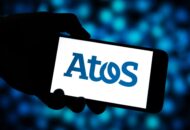I must admit that I hadn’t taken any notice of Verisign. I hadn’t heard of Stratton Sclavos before, although I now find out that he has been involved with high profile failures in Taligent and GO.
Everyone is aware that Microsoft are trying desperately to take control of the Web, with stiff competition from Sun and opposition from IBM, H-P, et al. But they are too late! Verisign already controls the Web! In case you may think this is a exaggeration, then every time you surf the Net, you are almost certain to run through one of their servers. In particular Verisign probably sold you your domain name and runs the services that detect and log illegal access, etc. They also provide the majority of servers for validating credit card transactions. Even more critical is the ongoing expansion of services to aggregate and sort transactions, passing them to the relevant financial institutions.
To quote Sclavos, he intends to make Verisign the first cyberspace "Utility" (in the sense of an electricity or gas supplier), by handling all the boring but complex details of the Internet. This of course is not a free service, it is in effect a "toll booth" which everyone passes through to get onto the Net! We can never be sure of claims about the Internet these days, but it is claimed that Verisign deals with two billion domain-name searches a day, protects $360 billion of Net commerce a year and handles $2 billion a year of credit card transactions. It is reported that Amazon.com, for instance, pays Verisign up to $900 for every server that runs their authentication software. This is not insignificant and Sun and Microsoft must be kicking themselves that they missed this route to controlling the Net!
Behind the scenes Verisign also provides data centres specializing in high security for thousands of large corporations. Building and running such a specialised computer centre is a complex and expensive business. Some of the big American banks built such centres for found that they could not sell a service to anyone else, because such potential customers were all competitors. It made a lot of sense to follow the EDI model and sub contract to a service provider, and Verisign won the race.
The early days of Verisign were tough because although their security product can from encryption pioneer Jim Bidzos, it was a difficult seel because no one really understood what it was about. Indeed Verisign competitors such as Entrust and Baltimore are still selling authentication as a software product and not a service. So how did Verisign get to be the top dog? The answer is simple, they bought it in that period when Internet related stocks were so high. They took over Network Solutions Inc, to the chagrin of all the Internet purists. NSI was the company sponsored by the US Government to administer the .com, .net and .org domain names. In the deal Verisign had to give up the smaller .net and .org databases, but had control of the all important .com, and now they, with NSI incorporated, has also got approval (in the interests of stability) to control the industry funded ICANN naming services. No wonder the Internet purists are so angry, it is against the principle of the Internet that anyone can control it as Verisign do.
Can Verisign continue to be successful? The signs are that they can. They are in just as powerful a monopolistic situation as are Microsoft on desktop software. It may never be as big a revenue earner as Microsoft Office, but they are relatively free from the problems of the dot.coms. As long as the Internet survives there is a demand for name services and e-commerce will not progress without security! The only downside is the huge price, $21 billion that Verisign paid for NSI, which will see them making paper losses for some years, but the real earnings are spectacular.





